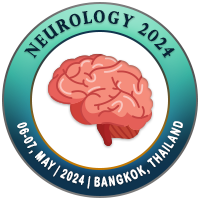
Aleksandr M. Potapkin
Institute of Experimental Medicine, Russian FederationTitle: Selective antagonist of AMPA-receptors as potential antiaddictive agents
Abstract
An increase in synaptic dopamine levels, particularly in the nucleus accumbens sheath, is a critical initial response for encoding a drug’s positive effect and the development of associative learning, which is crucial for finding drugs in response to their rewarding effects.
This study aims to review current data describing the role of AMPA glutamate receptors in the pathological drug search that occurs during the transition from drug use to drug abuse.
In the report describes mechanisms of interaction between dopamine and AMPA glutamate receptors in drug addiction pathogenesis are reviewed and analyzed.
After repeated exposure to psychostimulant drugs, the dopamine response to narcogen administration becomes sensitized, which is responsible for drugs of abuse over other natural reinforcers. The nucleus accumbens contains convergent inputs of dopamine and glutamate, which modulate the response to psychostimulant drugs. Simultaneously, a constant increase in AMPA-receptors lacking the GluA2 subunit was observed, which leads to an increase in conductivity and initiates a cascade of calcium-dependent signaling.
With the development of compulsive drug seeking, the expression of AMPA-receptors in the nucleus accumbens increases.
Based on this hypothesis, it is reasonable to propose drugs for the treatment of drug dependence that counteract the neuroplastic changes in AMPA-receptors caused by repeated drug exposure and leading to addiction. IEM-1460 and IEM-2131, which are two GluA1 AMPA blockers, have been proposed as potential therapeutic agents against addiction and other CNS diseases.
Biography
Aleksandr Mikhailovich Potapkin, researcher of Department of Neuropharmacology. Institute of Experimental Medicine, St. Petersburg, researcher of the Department of Clinical Psychology, St. Petersburg State Institute of Psychology and Social Work.

